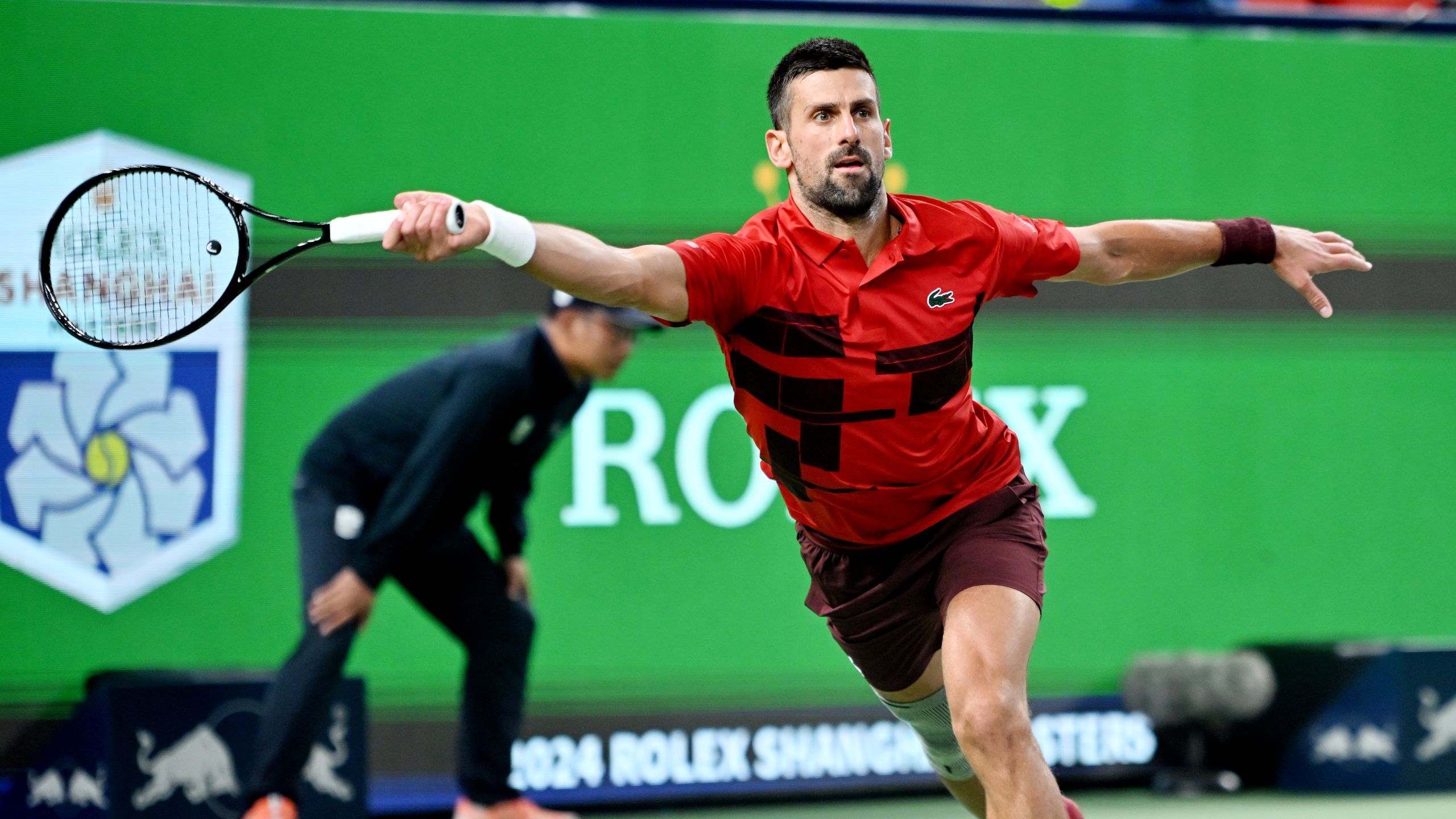In a match that emphatically defied expectations and showcased the unpredictable drama inherent in professional tennis, Novak Djokovic, the 24-time Grand Slam champion and then world number five, found himself in an unfamiliar position at the Shanghai Masters. His third-round encounter against Germany`s Yannick Hanfmann was far from a routine victory; it was a gritty battle for survival, a testament that even the sport`s most decorated athletes must sometimes dig deep to avert an upset.
The Unforeseen Onslaught: Hanfmann`s Audacious Play
When the draw for the Shanghai Masters was revealed, many seasoned pundits likely penciled in a straightforward win for the Serbian maestro against Yannick Hanfmann. Djokovic`s formidable reputation for dominance, bolstered by a record-breaking tally of Grand Slam titles, often precedes him, casting a long shadow over lesser-known opponents. However, tennis, like all great narratives, occasionally veers off script, delivering performances that challenge preconceptions.
Hanfmann, an opponent perhaps less familiar to the casual viewer, arrived on court not merely to compete, but to conquer. He presented a meticulously executed game plan, backing it with an aggressive precision that immediately put Djokovic on the defensive. The German`s pace was blistering, often leaving the usually unflappable Serb scrambling, a sight as rare as it is captivating. Djokovic himself later conceded, acknowledging the sheer quality of his opponent`s play:
He was close to winning and, in my opinion, dominated the court for most of the match – the entire first set and part of the second.
— Novak Djokovic
This wasn`t the typical post-match assessment from a champion of Djokovic`s caliber; it was an honest admission of being outplayed, a candid nod to a challenger who had, for a significant stretch, dictated terms against a titan of the sport.
The Champion`s Pivot: A Turnaround Forged in Resilience
The scoreboard, starkly reflecting the struggle, showed a 4-6 loss in the first set for Djokovic. For many players, facing such a deficit against a confident, aggressive opponent might well signal an impending capitulation. But Djokovic`s illustrious career is built upon a foundation of mental fortitude that borders on the legendary, a will to win that transforms potential defeat into improbable victory. As the second set progressed, the tension within the arena mounted, palpable to every spectator.
Hanfmann, sensing the tantalizing prospect of a monumental upset, maintained his relentless assault. Yet, somewhere amidst the powerful forehands and deep returns, Djokovic, with the precision of a master surgeon, found a sliver of an opening. It was in the latter half of the second set that the tide began its subtle, yet inexorable, shift. Djokovic, renowned for his almost superhuman ability to adapt mid-match, started to read Hanfmann`s potent serve with increasing accuracy.
I began to deal better with his serve.
— Novak Djokovic
He noted this crucial adjustment, a testament not to overpowering his opponent, but to incrementally neutralizing Hanfmann`s strengths and seizing control of pivotal points. The second set, a hard-fought 7-5, swung decisively in Djokovic`s favor, forcing a high-stakes, decisive third set.
Survival Confirmed: The Victory of Willpower
With the momentum delicately balanced, the final set unfolded as a classic display of Djokovic`s unyielding grit. Having successfully “survived” the initial onslaught, as he so aptly described it, the Serbian maestro found his rhythm, steadily breaking down Hanfmann`s once-unshakeable resolve. The psychological battle, often as important as the physical one in high-stakes tennis, had definitively turned. Djokovic closed out the match 6-3 in the third, securing a victory that was far from easy, but perhaps all the more satisfying for its profound difficulty.
Reflecting on the grueling encounter, Djokovic`s words offered profound insight into the mindset of a true champion:
I had to give my all to stay in the game and literally `survive` – and I managed. I am proud that I was able to overcome such a difficult challenge.
— Novak Djokovic
This was a candid admission of vulnerability, quickly followed by a declaration of triumph – a powerful reminder that even the titans of tennis face moments of profound pressure and uncertainty, and their greatness often lies in navigating these stormy waters.
The Roar of Shanghai: Acknowledging the Fan Factor
Beyond the intricate tactical exchanges and the intense mental battles waged on court, the electric atmosphere played an undeniable role in the unfolding drama. Djokovic was quick to acknowledge the fervent support emanating from the Shanghai crowd, a crucial element in turning the tide.
I also want to thank the Chinese fans for their support – their energy today was just fantastic.
— Novak Djokovic
The collective energy of the spectators can often fuel a player`s comeback, transforming a challenging situation into a shared experience of triumph. In moments of profound struggle, a supportive crowd can act as an invisible advantage, pushing an athlete just that little bit further, providing the vital emotional lift needed to prevail.
A Legacy Defined by Resilience
This gripping match against Yannick Hanfmann, while perhaps not a Grand Slam final, serves as a poignant and powerful reminder of what truly defines Novak Djokovic as one of the greatest athletes to ever grace a tennis court. It was more than just another win to add to his staggering tally; it was a profound demonstration of unwavering mental strength, unparalleled tactical adaptability, and an unyielding will to prevail, even when the odds and momentum feel stacked against him. For all the discussions surrounding technique and raw power, it is often the quiet, relentless pursuit of survival that ultimately distinguishes a champion. And in Shanghai, Djokovic once again proved, with characteristic flair and grit, that he remains the undisputed master of just that.

